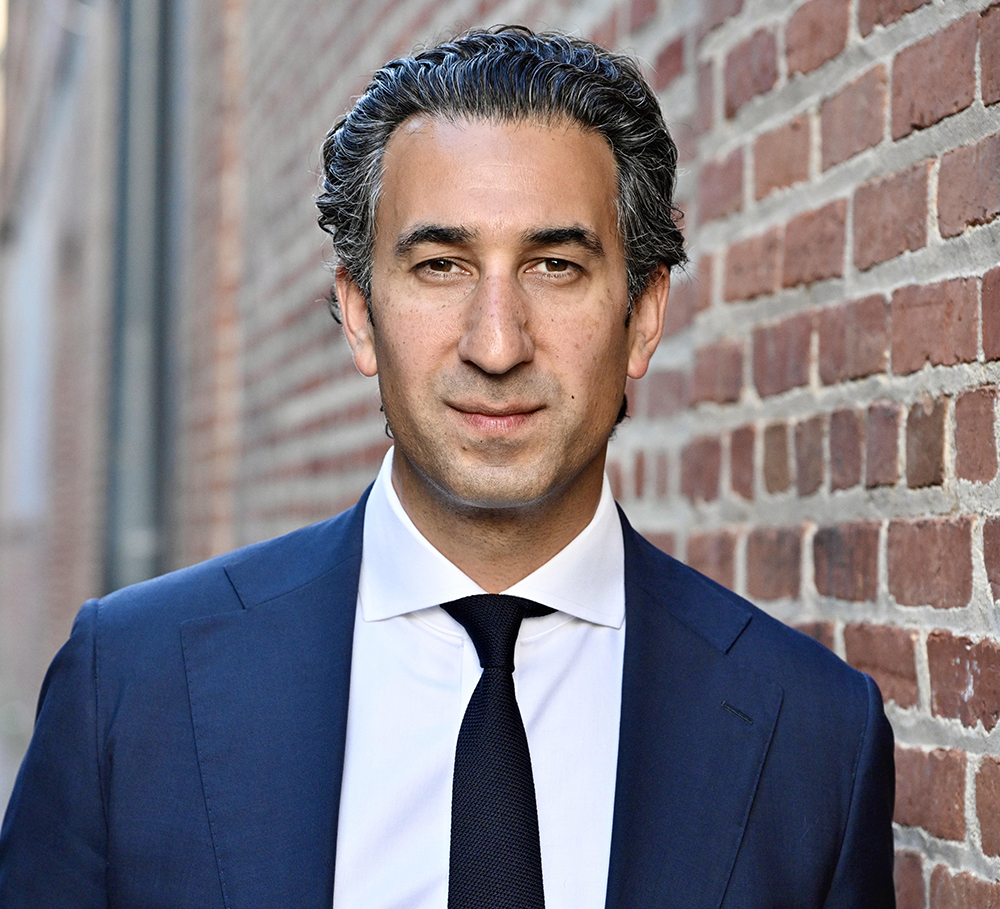A conversation with Karim Sadjadpour and Robin Wright about the recent protests and where the Islamic Republic might go from here.
Aaron David Miller, Karim Sadjadpour, Robin Wright
{
"authors": [
"Stefan Lehne"
],
"type": "other",
"centerAffiliationAll": "",
"centers": [
"Carnegie Endowment for International Peace",
"Carnegie Europe"
],
"collections": [
"EU Integration and Enlargement"
],
"englishNewsletterAll": "",
"nonEnglishNewsletterAll": "",
"primaryCenter": "Carnegie Europe",
"programAffiliation": "",
"programs": [
"Europe"
],
"projects": [],
"regions": [
"Europe",
"Western Europe",
"Iran"
],
"topics": [
"EU",
"Democracy",
"Political Reform"
]
}
Populist parties across Europe will continue to pose a challenge until the frustrations in traditional democratic politics have been addressed.
Source: International Affairs Forum
The American political scientist Francis Fukuyama has said that “populism is the label political elites attach to policies supported by ordinary citizens that they don’t like.” And it is true that populism should not be regarded as a pathology, but rather as an inherent element of democracy. When important concerns of the people are not addressed by the elites, the populist movements tend to form to challenge the establishment. Their ideas can rejuvenate democracy, bring new people into the political process, and adjust the political system to societal change.
But there are features common to many populist movements which are far less benign.
A. They are often based on a crude division between “us” (the pure people) and “them” (the corrupt elites and/or the foreigners). They often claim absolute moral superiority and possession of the whole truth. That makes them reject the legitimacy of the opponent. For the same reason, they are often inherently opposed to compromise and are unwilling to participate constructively in the political process.
B. Their way of operating often results in a decline in rational debate about political issues. There have always been a lot of lies in politics, but what we have witnessed, for instance, in the Trump or in the Brexit campaigns has a new quality. Observers have spoken of the posttruth age.
C. Populist movements are often led by charismatic leaders and have little internal democracy and accountability. These leaders tend to develop personality cults and, when they come to power, they often turn authoritarian. There is also a high risk of corruption and abuse of power.
D. Populist movements often turn against representative democracy and advocate instead a shift towards direct democracy on all levels. This offers them useful occasions for mobilization and frequently catches the elites on the back foot. But without an in-depth preparation through rational debate, as for instance is the long-standing practice in Switzerland, referenda often are influenced by factors extraneous to the issue at stake and end with arbitrary outcomes. You always get an answer, but often not to the question that has been asked.
E. For many populist movements, national sovereignty is the highest good. They are thus intrinsically mistrustful of international rules and tend to adopt aggressive “zero-sum” foreign policies. Their nostalgic longing for the mythic “golden age” of the protective national state also makes them deeply skeptical of transnational projects such as the EU.
F. Their obsession with national sovereignty also means that populist parties have few convincing solutions to 21st century challenges. Many of these are intrinsically transnational in character, such as coping with climate change, migration, economic development, scientific and technological progress; and regional and global stability. None of these objectives can be achieved by pulling up the drawbridge and withdrawing to behind fences or walls. All require an open mind and international engagement and cooperation.
It is useful to differentiate between long-term factors and triggers or catalysts. Among the first, I would count a fairly broad rejection of globalization in the U.S. and in Europe by population groups suffering from stagnating incomes, job losses, and social insecurity who are angry about rising inequality and who believe that their children will have worse lives than they have. Another long-term factor is the crisis of representative democracy. For a number of reasons the bonds between the public and their political representatives have weakened. Many people have lost trust in mainstream politics and have turned to alternative political offers.
The 2008 financial crisis and the refugee crisis of 2015/16 acted as catalysts; they spread a sense of insecurity and loss of control that galvanized the already-present frustration and fueled the rise of populist parties.
After the double-shocks of the Brexit vote and the election of Donald Trump, a domino theory developed, according to which one European democracy after the other would succumb to the onslaught of the populist right. This approach was always implausible as the political dynamics but also the electoral and constitutional rules vary greatly from country to country.
In view of the proportional electoral system in the Netherlands and the absence of potential coalition partners, Geert Wilders never had a realistic chance to lead the next Dutch government. Still, his unexpectedly weak performance and the success of Mark Rutte gave a psychological boost to the mainstream parties in Europe. Unfortunately, it is also true that Wilders’ xenophobic and anti-European polemics managed to drive some of the mainstream parties in the Netherlands towards increasingly restrictive positions on migration and the EU.
As the Austrian president has no real power, this contest was primarily of symbolic relevance. Still, the victory of the “Green” candidate Van der Bellen over the rightist Norbert Hofer confirmed that one can win with a consistently pro-European liberal-democratic approach. However, Hofer’s party is still popular in Austria and could do well in the Austrian parliament elections which will take place in October 2018.
Populist parties are now in government in several EU member states, even though apart from Poland and Hungary, they are junior partners in coalitions. Experiences vary. Sometimes joining a coalition will prompt a populist party to turn more mainstream and responsible. This, for instance, happened to the Greens in the 1980s and 90s. Sometimes it has led to a massive drop of support for such parties when the protest voters turn elsewhere. This seems the case in Finland, where according to the polls the True Finns have lost much of their appeal. The situation is, of course, different when a populist party dominates the government. In such cases, we have seen a rise of nationalist rhetoric and worrying tendencies to curtail constitutional checks and balances, and the freedom of media.
The EU institutions are still dominated by mainstream parties from the centre right and the centre left. About 25 percent of the members of the European Parliament belong to populist parties but they are mostly marginalized in the decision-making process. The direct effect of the rise of populism is therefore quite limited, but the indirect effect is significant. Fear of their populist competitors prompts mainstream politicians to prioritize national interests and adopt EUskeptical positions, which weakens solidarity among member states and makes progress towards European solutions more difficult. Populist parties are also at least partly responsible for the growing demand for referenda on EU matters, which for them are perfect instruments for mobilization.
Recent experience with referenda in Greece, Denmark, the Netherlands and the UK has shown how difficult it is to win such referenda in the current political climate. Fear of further defeats has crippled the EU’s ability to adopt significant reforms.
Also in Europe, many populist movements are savvy and successful at using social media, leaving most mainstream parties far behind. The speed, superficiality and interactive nature of social media make them very well suited to spread populist ideas. The fragmentation of the information space into “bubbles” within which people mostly listen to ideas that they already hold, greatly favors the work of populists. Phenomena like “posttruth” and “fake news” present huge challenges to traditional representative democracy. So far nobody has come up with a convincing response.
The national elections in European countries in 2017 are clearly of major importance. But it was wrong to believe that the current wave of populism would simply sweep away the existing political order of Europe. And it would be equally wrong to assume that after Geert Wilders modest results, the convincing victory of Macron over Le Pen, and the likely defeat of “Alternative fuer Deutschland” in Germany, the populist threat would disappear. As long as the main underlying reasons for the alienation of large parts of Western societies, the anger of the losers from globalization and the frustration with traditional democratic politics are not addressed, the challenge will remain.
The EU and its member states have to pay more attention to the consequences of inequality and social injustice, and take action to cushion the effects of global competition and asymmetric shocks on vulnerable citizens. Apart from providing opportunities and assistance to these people, the EU also needs to tackle inequality by promoting fairer tax systems that ensure multinationals pay their fair share, exposing tax havens, and preventing money laundering and corruption.
Managing migration well is another crucial challenge. Europe needs immigration in view of its demographic decline, but the process needs to be handled in an orderly manner. This requires better control over the external border, better common rules in the areas of migration and asylum, and more effective institutions.
Concrete results in areas of direct concerns to the citizens are obviously the best way to regain their trust and defeat the populist. But EU institutions and the governments of member state should also explore new ways to make politics more transparent, participative, and democratic. If citizens felt more involved and consulted, they would regain confidence in their representatives and would be less attracted by the simplistic solutions of populist parties.
This article was originally published by International Affairs Forum.
Carnegie does not take institutional positions on public policy issues; the views represented herein are those of the author(s) and do not necessarily reflect the views of Carnegie, its staff, or its trustees.
A conversation with Karim Sadjadpour and Robin Wright about the recent protests and where the Islamic Republic might go from here.



Aaron David Miller, Karim Sadjadpour, Robin Wright
Western negotiators often believe territory is just a bargaining chip when it comes to peace in Ukraine, but Putin is obsessed with empire-building.

Andrey Pertsev
When democracies and autocracies are seen as interchangeable targets, the language of democracy becomes hollow, and the incentives for democratic governance erode.


Sarah Yerkes, Amr Hamzawy
German manufacturing firms in Africa add value, jobs, and skills, while benefiting from demand and a diversification of trade and investment partners. It is in the interest of both African economies and Germany to deepen economic relations.
Hannah Grupp, Paul M. Lubeck
Unexpectedly, Trump’s America appears to have replaced Putin’s Russia’s as the world’s biggest disruptor.

Alexander Baunov